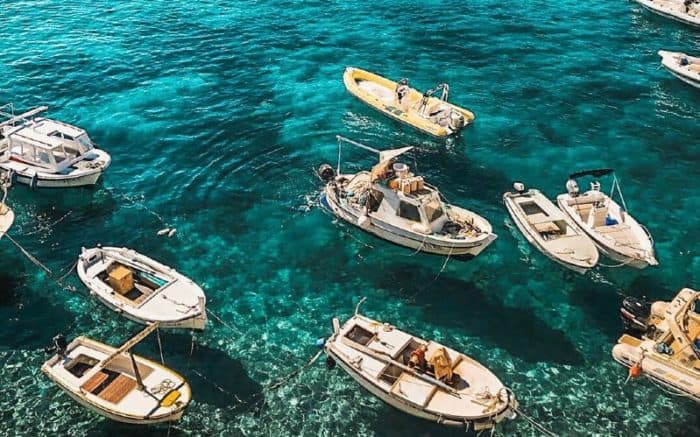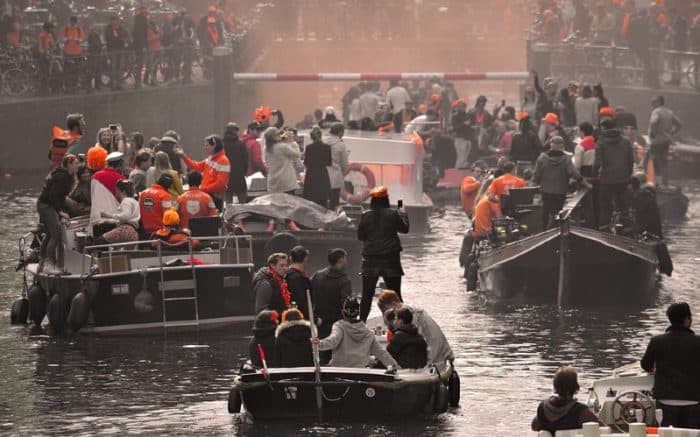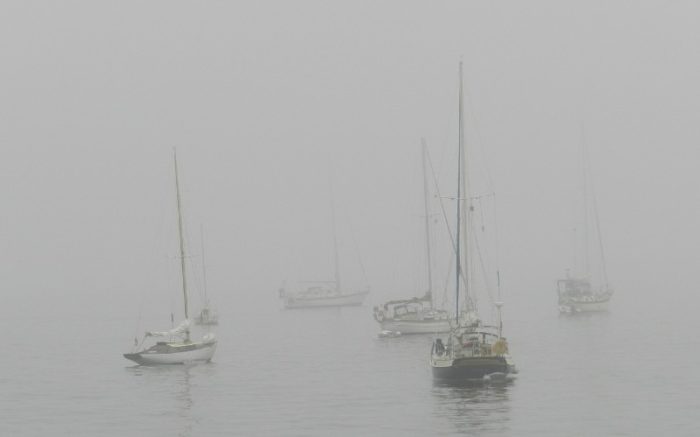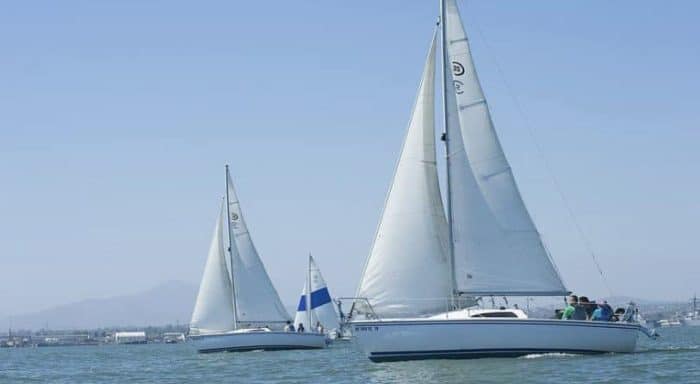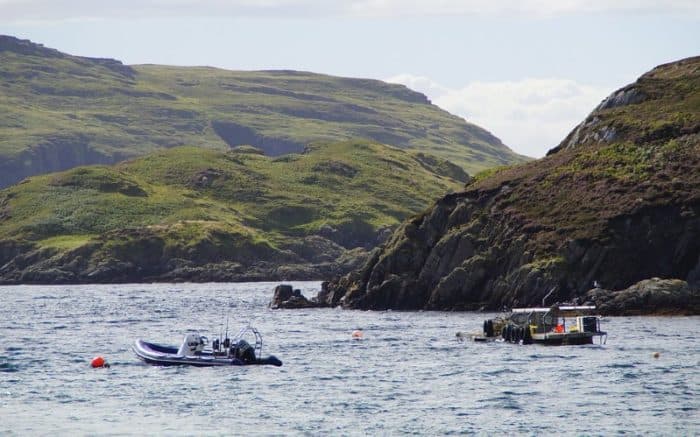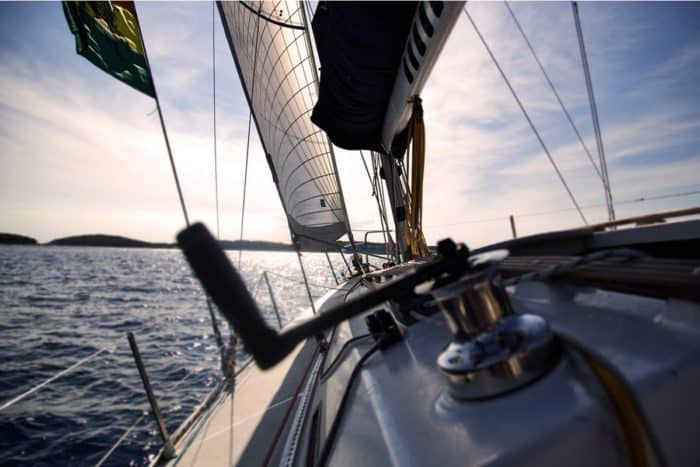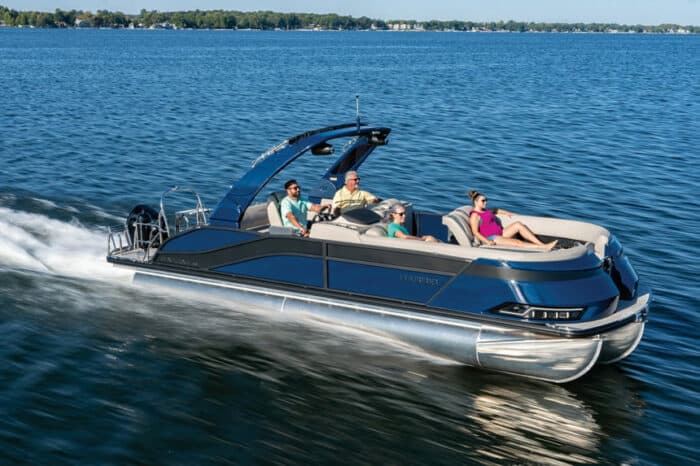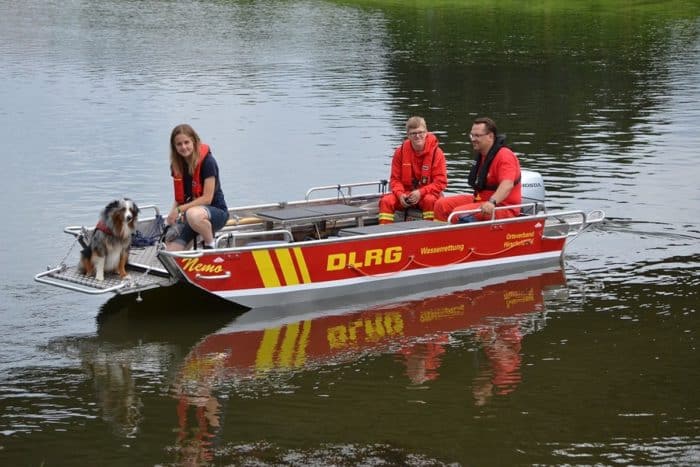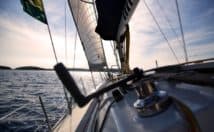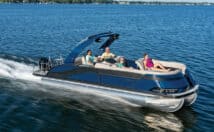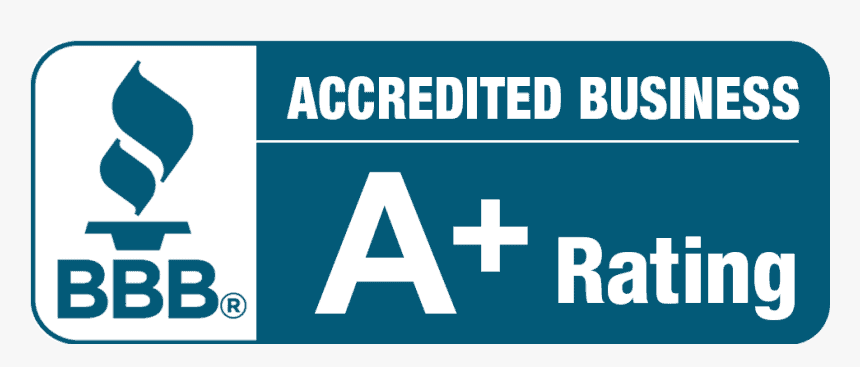Who is Responsible For Avoiding a Collision Between Two Boats?
The responsibility for avoiding any collision between boats belongs to both boaters on the water. You can never rely on someone else to keep you safe and absolve yourself of responsibility because it’s just not worth the risk. That’s not to say a boating accident that does happen will be equally the fault of both parties, but both parties do need to do whatever they can to avoid it from happening.
Whose Fault is a Collision Between Boats?
Some boaters may not understand at first how it can be their responsibility if someone else is clearly at fault, but think of it this way. You’re in a small fishing boat and you’re heading directly towards a massive freighter that weighs over 100 tons. It’s heading at you at full speed but technically you have the right away. Are you going to not move because the other boat is wrong? Or are you going to get out of the way of a boat that will literally crush your boat to pieces? You’re going to move.
You don’t have to be in the wrong to be responsible. When the risk of property damage, injury or even death is on the table, it’s best to worry about whose fault it was later when everyone is safe and do the right thing by avoiding a collision at all costs.
So yes, a collision may be 100% not your fault, but it is still your responsibility to do whatever you safely can do to avoid it.
How to Avoid a Collision
Obviously any boater is meant to follow the specific Rules of the Road at all times on the water. That said, if everyone was able to do that, then we’d never have a risk of collision. But sometimes things happen, and they’re not always what you might expect. Collisions could be risk of any number of things including:
- Irresponsible boating
- Alcohol/drug use
- Untrained operators
- Mechanical malfunctions
- Medical emergencies
Because a potential collision may not even be the fault of anyone, it’s best to never assume what’s going to happen or why. Things could get out of hand for many reasons. In light of that, the US Coast Guard understands a boat user may break the rules of navigation for the sake of avoiding collisions. In other words, if you’re about to have a collision, do anything you can to either avoid or minimize the situation. The goal is to reduce harm, both to people and property.
Stand On Boat and Give Way Boat
While it is the responsibility of both boaters to avoid a boat accident, that obviously doesn’t exist in a vacuum. You need to do specific things to smoothly operate on the water and avoid the potential for collisions as much as possible and that means understanding boating rules.
A stand on vessel is the one that has the right of way while the give way vessel is the one that should keep clear of the stand on vessel. In general, a stand on vessel should maintain course and speed when passing or crossing paths with other boats unless the give way vessel is not following the rules. This is when avoiding a collision comes into play and, even as the stand on vessel, you need to stop, reverse, alter course or whatever else is necessary to avoid a collision.
When another boat approaches you head to head, neither qualifies as the stand on and, in this case, you should both be altering course slightly so that you pass port to port to avoid a collision. One vessel blows a single horn blast to indicate the change in direction and the other vessel responds in kind to maintain communication and ensure both vessels know the other is moving starboard so they can each pass one another to port. It’s always best to proceed with caution in a situation like this just in case the other vessel is not able to fulfill their responsibilities.
Other Rules A Boat Operator Needs to Avoid a Collision
You have other situations in which you’ll need to avoid other boats to prevent a collision. If you’re in a power driven vessel then you should be keeping out of the way of the following:
- Sailboats
- A vessel that is not under command
- A vessel that is disabled or otherwise unable to maneuver
- A fishing boat hauling in nets
If you are in a sailboat then you need to avoid the following:
- A vessel that is not under command
- A vessel that is disabled or otherwise unable to maneuver
- A fishing boat hauling in nets
Finally, in a fishing vessel you need to avoid the following:
- A vessel that is not under command
- A vessel that is disabled or otherwise unable to maneuver
Signals Boat Operators Need to Know to Avoid Boating Accidents
Sound signals are integral to avoiding collisions. You need to let other boaters know your intent so they can respond in kind.
One Short Horn Blast: This indicates your intent to alter course to starboard
Two Short Horn Blasts: This indicates that you intend to alter course to port
Three Short Horn Blasts: This tells other boaters you are backing up/using astern propulsion
Five Short Horn Blasts: This is an important signal to remember as it indicates you or the person sending the signal to you doesn’t understand intent. If you don’t know what the other boat is doing because they have not signaled or their signal made no sense, this will tell them you do not know how to proceed because you do not know how they are proceeding. Likewise, if another boat sends you this signal they are unclear about what you are doing. If that’s the case you need to signal them again and proceed with caution or stop outright until you both understand what is happening.
One Long Horn Blast: This is a warning signal that there is an unseen vessel in the water. If you can hear this signal you should reply in kind with a prolonged blast from your own. One horn blast also indicates you are leaving a dock or berth of some kind and are warning other boats. Likewise it’s a warning that you are approaching an obstruction or a blind turn.
One Prolonged Blast Every 2 Minutes: You need to do this if visibility is low. It will alert other boats, also unable to see that you are nearby and help prevent collisions.
Two Prolonged Blasts Every Two Minutes: This is another limited visibility signal that indicates you are in a power-driven boat but you are stopped in the water and not making way.
Tips to Avoid Boat Collisions
- The best thing you can do so that no collision occurs is to pay attention and follow navigational rules. Watch and listen to your surroundings. Be aware of sound signals from other vessels and watch what the people near you are doing. Communicate clearly when necessary and take responsibility for your own vessel and crew early rather than leaving things to chance in an uncertain situation.
- Be careful in bright sun. If you’re traveling into the sun on a clear day and there’s glare off the water, it can be hard to see oncoming boats. Alter course if possible or reduce speed and proceed with caution.
- Always keep your radio on and make use of radar if you have it.
- Don’t speed! Some boaters have trouble resisting this, but stick to posted speeds and slow down when you have limited visibility or are in areas with a lot of other boaters.
- Use your navigation lights. In low light and low visibility conditions your navigation lights are essential for other boats seeing you on the water.
- If you are boating with others, have another person on board work as a proper lookout to help you keep aware of your surroundings and what other vessels may be doing.
- Avoid shipping lanes. Large commercial vessels always have the right of way and it’s never a good idea to get in their way in the first place. Not only are these vessels far too big and powerful they produce a dangerous wake and in many cases may even be unable to see smaller craft in the water until it’s too late, if at all.
- Whenever possible, avoid weather that limits visibility. Heavy rain and fog increase the likelihood of collisions.
- Avoid tugboats. Tugboats may have long and hidden lines dragging behind them, so keep your distance as much as possible and never cross between a tug boat and the boat it’s towing.
- Always ensure you or whoever is operating your vessel is fully aware of how to properly operate the vessel and also is fully sober and capable of doing so. No one should have to be told not to drink while boating but alcohol is still a major factor in numerous boating accidents. If you want to drink on a boat, then just as in driving a car, you need a designated operator who will not partake.
The Bottom Line
It is the responsibility of every boater to do what they can to avoid collisions. Though it may not be your fault that puts you at risk of one, you still need to do what you can to prevent it whenever possible. Remember the rules of the road and always be responsible and cautious on the water.
Categories: Boats
